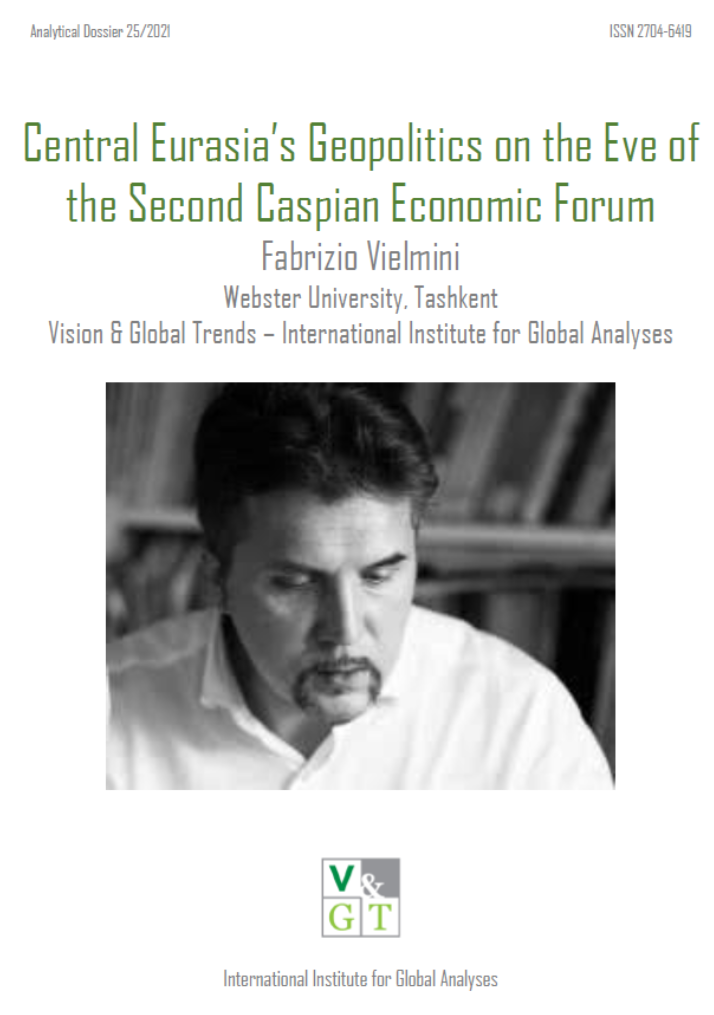Author: Fabrizio Vielmini – 05/08/2021
This Autumn Moscow will host the II Caspian Economic Forum (CEF), an economic platform part of the cooperation between the five littoral countries of Eurasia’s biggest inland water reservoir, Russia, Iran, Azerbaijan, Kazakhstan and Turkmenistan. Postponed last year because of the COVID measures, the gathering is a major event of the “Caspian Five” (C5) cooperation, born at the Summit held in August 2018 in the Kazakhstani port city of Aktau. Here, the five Presidents signed a landmark document: the Convention on the Legal Status of the Caspian Sea.
For more than 20 years, disputes between the five on the legal status of these waters prevented the definition of a stable international regime around the Caspian. For almost two centuries, the basin had been a Russian-Iranian condominium, under joint usage in Soviet times. The appearance of three new condominiums following the Soviet break-up revolutionized the region. Axing their economic transition on energy resources’ exploitation, Kazakhstan, Azerbaijan, and Turkmenistan claimed exclusive rights on the offshore fields along their shores. To substantiate their claims, they appealed to international law, asking that the Caspian should be treated as a sea. According to the International Convention of the Law of the Sea, if such status would be applied, a littoral country detains an exclusive zone of economic exploitation profiling its coasts.
Continue reading, please download the Analytical Dossier AD_25_2021 ISSN 2704-6419

Other articles by Fabrizio Vielmini published in Vision & Global Trends. International Institute for Global Analyses’ website:
- Geopolitica dei trasporti nel Caucaso nell’era post-Karabakh
- The Afghan Mirror of World Policy
- Asia centrale: problemi di sicurezza nel contesto della continuazione della guerra in Afghanistan
- The Caucasian Dimension of the Russian Power
- The OSCE and EU Actions towards Georgian Separatist Conflicts: the Case of South Ossetia by Fabrizio Vielmini
